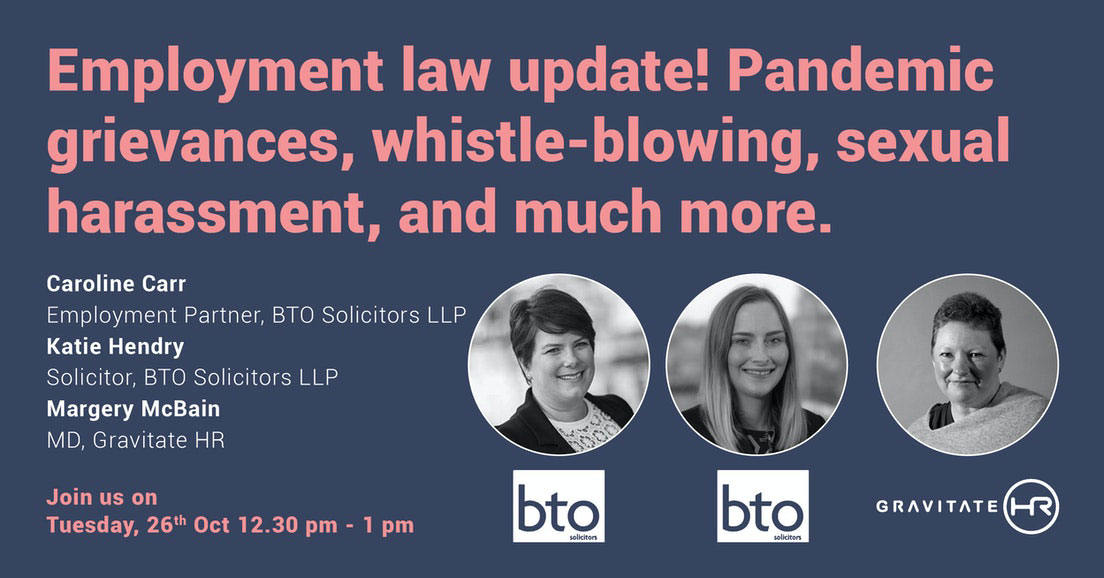It was really good to catch up with Caroline and Katie on the webinar today. We have worked together on cases but there is often little time to catch up on broader themes and developments in employment-related cases. Our observations are very similar. That the long period of time working from home and being isolated from colleagues has taken its toll on productive work based relationships and has given rise to more formal cases of Grievances and cases going through to Tribunal.
It would seem that the separation from the office and working more closely with managers has not been filled with effective and constructive discussions digitally, leading to lack of clarity, misinterpretation and tensions. The lack of spontaneous conversations, sharing of information by osmosis, and the opportunity not to give of your all has been the breeding ground for issues, tensions and with a lack of informal interaction, the number and type of grievances has risen.
So what should you do?
We would recommend that you refer to your policies and procedures and then follow the steps that you have laid out in your policy. Take early action and do not let matters fester or fall behind. If you are not sure what to do, then seek early advice from an expert either HR or legal. Be open and transparent in your dealings, investigate fully and do not make assumptions. If there has been wrong doing then take remedial action. This will be to the benefit of the employee who raised the grievance and other employees. At the end of the day most employees want to work for a reputable employers who deals with matters fairly and consistently.
Disciplinary and Grievance cases are frequently not black and white, there are many ways of approaching and often matters open to discretion and interpretation. So it can be advisable to get expert advice and an independent opinion. The consequences of getting it wrong can be severe and end up in tribunal action. We heard in the webinar of an increase of cases of employees with less than 2 years service who were able to bring a claim to the tribunal as their claim was related to whistleblowing of Health and Safety Concerns. So you should not assume that an employee with less than 2 year service may not have grounds to bring a claim. In the cases described by Katie, it was clear that fuller and deeper investigation into the matter may have avoided an unsafe decision. Better off to establish the facts of the case during the grievance or disciplinary rather than have them exposed at tribunal which can be costly in terms of money, time, effort and reputational damage.
Please do watch the webinar and if you would like a further conversation to see how we can help, please contact either Caroline at BTO, cac@bto.co.uk or Margery at Gravitate HR, margery@gravitatehr.co.uk.
